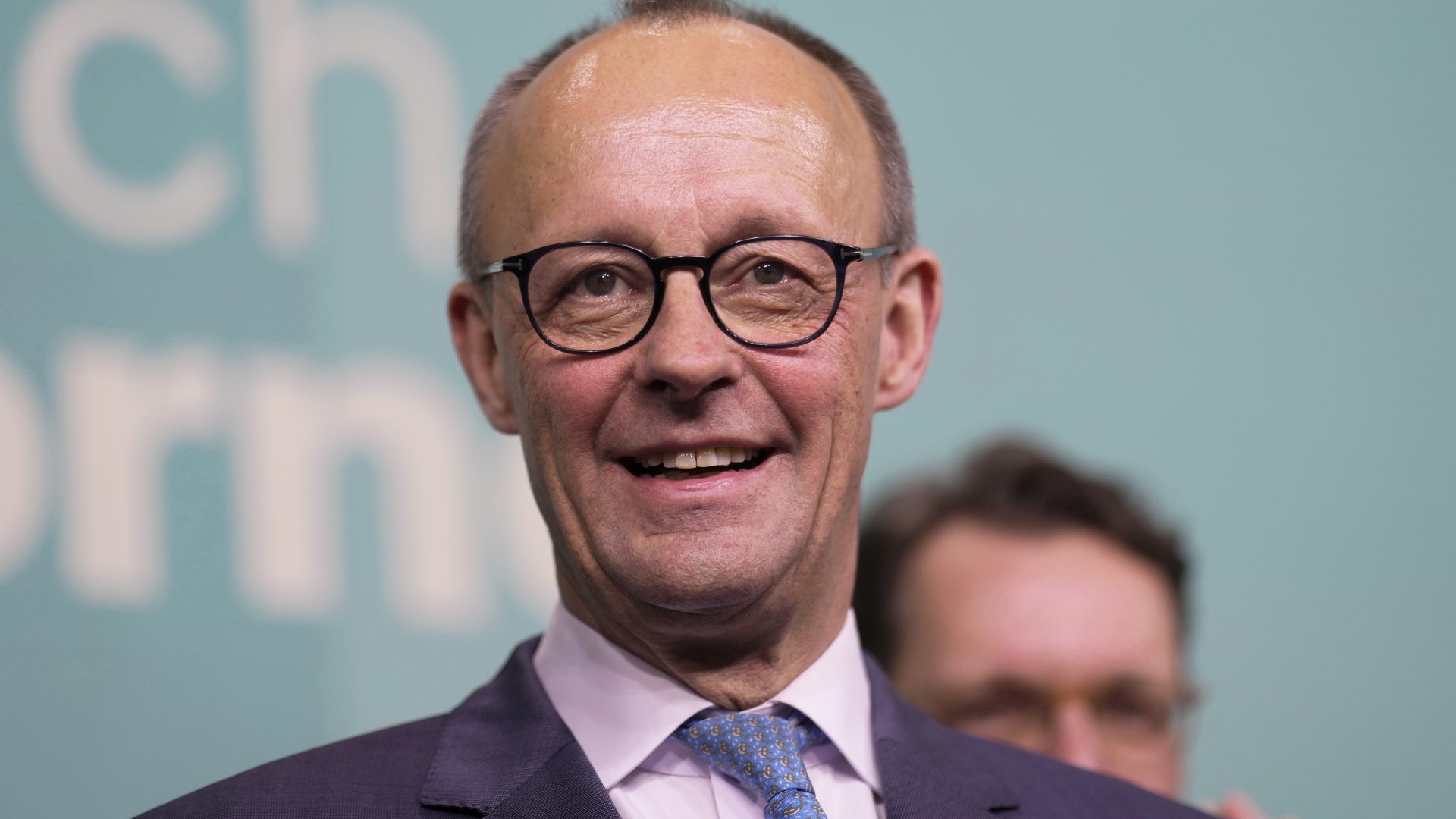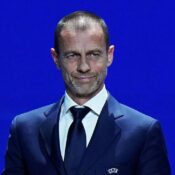
Conservative Merz becomes German chancellor after initial failure
Friedrich Merz, the conservative leader of Germany, was elected chancellor by parliament on Tuesday in a second round of voting after his coalition administration got off to a shaky start with an unprecedented defeat on the first try.
In the secret ballot, Merz, 69, who forged a coalition agreement with the center-left Social Democrats (SPD) and guided his conservatives to a federal election victory in February, received 325 votes, nine more than the required number for an absolute majority.
At least 18 coalition MPs did not support him, as he received only 310 votes in the first round of voting.
According to political commentators, the fiasco would probably increase mistrust among coalition partners, pointing to a far from stable union at a time when Europe needs strong leadership from Germany, its biggest economy.
According to Jana Puglierin, president of the European Council on Foreign Relations think-tank’s Berlin office, “the entire continent of Europe looked to Berlin today in the hope that Germany would reassert itself as an anchor of stability and a pro-European powerhouse.” “That hope has been dashed.”
Merz stated that he would rather just get to work than try to figure out why people didn’t support him in the first round.
He told public television ARD that securing the nation’s independence and reviving its economic competitiveness were his main goals. “I have no doubt, after today, that we will work together in this coalition with mutual trust,” he said.
Merz assumes office as Europe rushes to reach a trade agreement with the United States and agree on security guarantees to provide Ukraine as part of any ceasefire agreement with Russia.
This year, U.S. President Donald Trump announced broad tariffs that might put Germany, which has already struggled with the loss of cheap Russian gas since Moscow’s full-scale invasion of Ukraine in 2022 and increased competition from China, at risk of a third year of economic decline.
Plans to boost growth have been outlined in the German coalition agreement, including cutting energy prices and lowering the corporate tax. It also promises more military spending and robust support for Ukraine.
“We sincerely hope… that we’ll see more German leadership in European and transatlantic affairs,” Volodymyr Zelenskiy, the president of Ukraine, stated on X. “This is especially important with the future of Europe at stake.”
Merz, who became Germany’s tenth chancellor since the conclusion of World War Two, went to the neighboring Bellevue Palace to receive President Frank-Walter Steinmeier’s formal nomination following Tuesday’s vote. He then returned to the historic Reichstag building to take the oath of office.
In an attempt to demonstrate that Germany is back on the international scene after the fall of the previous SPD-led coalition in November, the run-up to the February election, and months of horse-trading, he travels to important allies France and Poland on Wednesday for his first trip as chancellor.
Merz told the station ZDF that he will talk to Trump on the phone on Thursday and that he might even meet with him prior to the NATO gathering at the end of June.
DISCLOSING THE START
Merz is renowned for his unpredictable and harsh methods, and it was the first time in post-war Germany that he failed to secure support for his candidacy as chancellor.
Despite complaints in both coalition parties about cabinet nominations, policy concessions, and a massive borrowing package that was forced through the outgoing parliament in its last days, party sources predicted on Monday that he would quickly clinch a majority.
Since their already poor showings in February, the two coalition parties have lost popularity, particularly the conservative CDU/CSU grouping, which is partly because of dissatisfaction with Merz’s decision to relax borrowing restrictions in defiance of campaign pledges of fiscal restraint.
Carsten Brzeski, Global Head of Macro at ING Research, stated, “We won’t know the official reasons for the failed first round this morning because the votes are secret.” “But to us, it looks as though some MPs from the CDU/CSU wanted to show their clear dissatisfaction with Merz’s U-turn on fiscal policy following the elections.”
According to Forsa pollster Manfred Guellner, the far-right, anti-establishment Alternative for Germany (AfD), which finished second in February and has topped some recent polls, was the only winner of Tuesday’s fiasco.
“Trust in political institutions is being further damaged,” he stated.
Analysts claim that Merz’s chosen cabinet demonstrates a desire for renewal in light of the waning trust in the establishment and a belief in the value of experience over political capital. A number of cabinet members, including the minister of economics, are recent hires with prior expertise in their respective fields in the private sector.
Boris Pistorius, the minister of defense, is the only member of the previous cabinet who will continue to serve.
In contrast to his predecessor, Social Democrat Olaf Scholz, some Europeans are still hopeful that Merz, a seasoned politician who began his career as a European MP in 1989, will be more Europe-minded.
On X, French President Emmanuel Macron commented, “Congratulations on your investiture, my dear Chancellor Friedrich Merz,” “It is now up to us to make sure that the Franco-German engine and combined decision-making is stronger than ever.”
All Categories
Recent Posts
Tags
+13162306000
zoneyetu@yahoo.com



